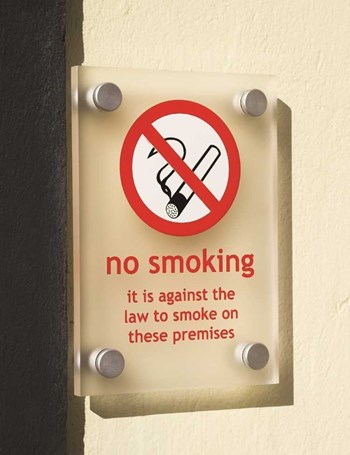
Co-op apartment buildings were originally formed in New York City to allow building residents to buy into and have a say in how their building was administered, as well as who their neighbors were, and what those neighbors were allowed to do within the building. This is in contrast to condos, which are real property. As such, their owners are typically not subject to the intense scrutiny and regulation co-op shareholders can be.
That being said however, some condo boards in the city have begun adopting more co-op-like rules and regulations in an attempt to exert more control over their building communities. This has caused some friction in certain building communities, and raised legal questions about just how much control a condo board can wield over its residents.
Apples and Oranges
Before examining the current trend of stricter rules and regulations, it is necessary to review the fundamental differences between co-ops and condos.
A cooperative is a corporation—like ExxonMobil or General Motors, for example. Residents own shares of that corporation—the number of shares proportionate to the size of the apartment occupied. There is no master deed to the property rather a proprietary lease. In this sense, the residents don’t technically own their apartments, just the right to occupy them. This technicality has a long history in New York case law.
“According to New York law, they are tenants,” says Adam Leitman Bailey, the principal of Manhattan-based law firm Adam Leitman Bailey PC, of co-op residents. “The co-op is considered the landlord.”
What this means in real terms says Leitman Bailey, is that internecine co-op disputes can be heard at landlord-tenant court, a relatively modestly-priced legal venue. This gives great heft to a co-op board’s ability to exert controls over its residents.
A condo, by contrast, is essentially the same thing as owning a house in Westchester. Residents own the unit outright. They hold a deed to the property. They pay property taxes directly to the municipality. Thus the condo board is not considered a landlord by the courts, severely restricting its powers to enforce rules.
“In a co-op, you can go to landlord-tenant court and evict someone for disobeying the rules,” says Leitman Bailey. “You can’t do that for condos.”
Instead, condos attempting to levy fines or collect owed fees must put a lien on the property, and then move to foreclosure. This is often prohibitively expensive.
“With late fees, it’s very hard to enforce,” says Leitman Bailey. “You do what? Spend $50-, $80 thousand dollars in court, trying to enforce the lien?”
In a sense, the condo board is more bark than bite. This is because the relationship of board to resident is so markedly different between co-op and condo.
“In a co-op, because it’s a co-op, the board has the authority to essentially do anything it wants,” says Stuart Saft, a partner with the law firm of Dewey & LeBoeuf in Manhattan. “In a condo, the board is an agent, and only has the specific authority the owners grant it.”
Despite the quality of life issues that arise when a condo board is essentially powerless to, say, stop a unit owner from owning a dog that barks ceaselessly all night long, condo owners have been reluctant to bestow more power upon their boards. This is changing, however.
“We’re [being] asked by condo boards to give them more control over the operation of their buildings,” says Saft. “I’m regularly getting calls for condos to put in more controls, especially on quality of life issues.”
Co-op-like rules for condo communities “is the hottest thing in town,” says Leitman Bailey. But why is it hot now?
Historical Perspective
The St. Tropez was the first condominium building in New York City, first occupied in 1969. Previously, the lion’s share of apartment buildings were co-ops. Thus, there is case law pertaining to co-ops stretching back for almost a century. The Condominium Act was passed in 1964, but condos did not really take off in the city for another 20 years.
“Until the mid-1980s, there weren’t many condos in New York,” says Saft. “Then there was a wave of new construction that stopped when the market cratered. Now, everything that’s been built since the boom started in the 1990s has been a condo.”
Buildings built during the first wave of condos built in the Reagan years are now over two decades old and are starting to need major repairs. Major repairs require revenue, and it’s much easier for a co-op to generate revenue than a condo—just like it’s easier for an emperor to raise taxes than a republic.
“As condos start to age, they’re trying to find a way to pay for capital improvements that can cost hundreds of thousands of dollars,” says Saft. Co-ops use a transfer fee, the so-called “flip tax,” to fill their coffers. Condos don’t have the same ability.
When there were so few condos in New York, not only was there not as much legal history, there was not as much need for it. Fewer condos meant less regulation. The demographics have changed this, too.
“There’s been more development than ever before in New York,” says Leitman Bailey, “and almost every new building is a condo. More and more people are living in condos than ever before. They need more rules and regulations.”
What power a condo board has stems from a power inherent in the bylaws of most condos: the right of first refusal (ROFR).
“When you sell a condo, the board can reject your buyer, as long as they agree to buy you out at the same price,” says Leitman Bailey.
Saft tells of one condo whose board used the right of first refusal to stall for time, to kibosh the sale of one of the units. During the paperwork process, “the board found out that the buyer had been arrested 13 or 14 times for assault,” Saft said. The board members went door to door, collecting the requisite supermajority of signatures, and amended the bylaws to be able to reject a purchaser who had been found guilty of a violent crime.
Fortunately, this does not seem to be a prevailing problem. Sex offenders, another group of people condos might want to restrict from purchasing a unit, are also not an issue for condos.
“I have over 200 co-op and condo clients,” says David J. Byrne, a shareholder attorney with the law firm of Stark & Stark in Lawrenceville, New Jersey, which also has an office and clients in New York, “and no one has ever asked me to prepare that kind of paperwork.”
Restrictions
The key to the power of a condo board is in the bylaws. If power is granted in the bylaws—or, even more powerfully, in the building’s offering plan—the condo board can throw its weight around. Absent this, a condo board is fighting an uphill battle when it comes to introducing and enforcing new rules and regulations.
Not that condo boards haven’t tried to flex their muscles.
“Can you have pets? Can you sublet? Can you restrict noise? Can a condo use a flip tax? Some condo attorneys say you can do it,” says Leitman Bailey. But the rule of thumb, he says, is that courts will only allow condo boards to exercise powers specifically given them in the bylaws or offering plans.
“The board only has so many powers,” Leitman Bailey says.
The advantage of owning a condo is that it’s easier to sell and easier to rent, because the board does not need to approve either transaction. This is good news, because, with a weak board unable to curtail potential disruptive behavior by neighbors, condo owners may have to sell or rent to escape the aforementioned barking dog. Why would owners not want to give the board more power?
“The concern is one of fear,” says Saft, that a restriction in freedom to sell will hurt the bottom line. “The general consensus is that condos sell at a 10 to 15 percent premium over co-ops. But we don’t know if that’s anecdotal or reality.”
The financial structure of co-op and condo are so different that the purchase price might only tell some of the story. The lesser common charges in a condo, Saft says, are offset by the fact that condo owners pay property taxes, which are included in a co-op’s maintenance fee. Then there is the realtor angle.
“Brokers push condos because they don’t face rejection like they do in a co-op,” Saft says.
“You could think condos are more desirable because they have less restrictions,” says Leitman Bailey. “That’s both true and false.” People don’t like the restrictions on buying and selling in a co-op, he says, “but they like the police powers of a co-op on quality of life issues.”
What condos are trying to do, then, with the recent push for more board control, is have the best of both worlds.
Greg Olear is a freelance writer and a frequent contributor toThe Cooperator.






4 Comments
Leave a Comment